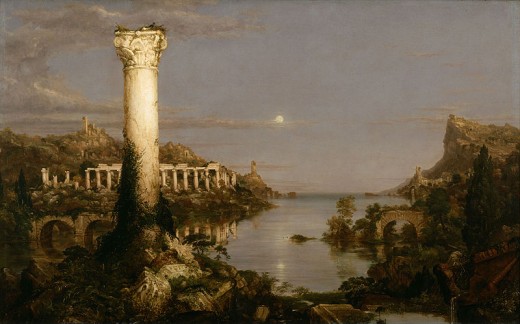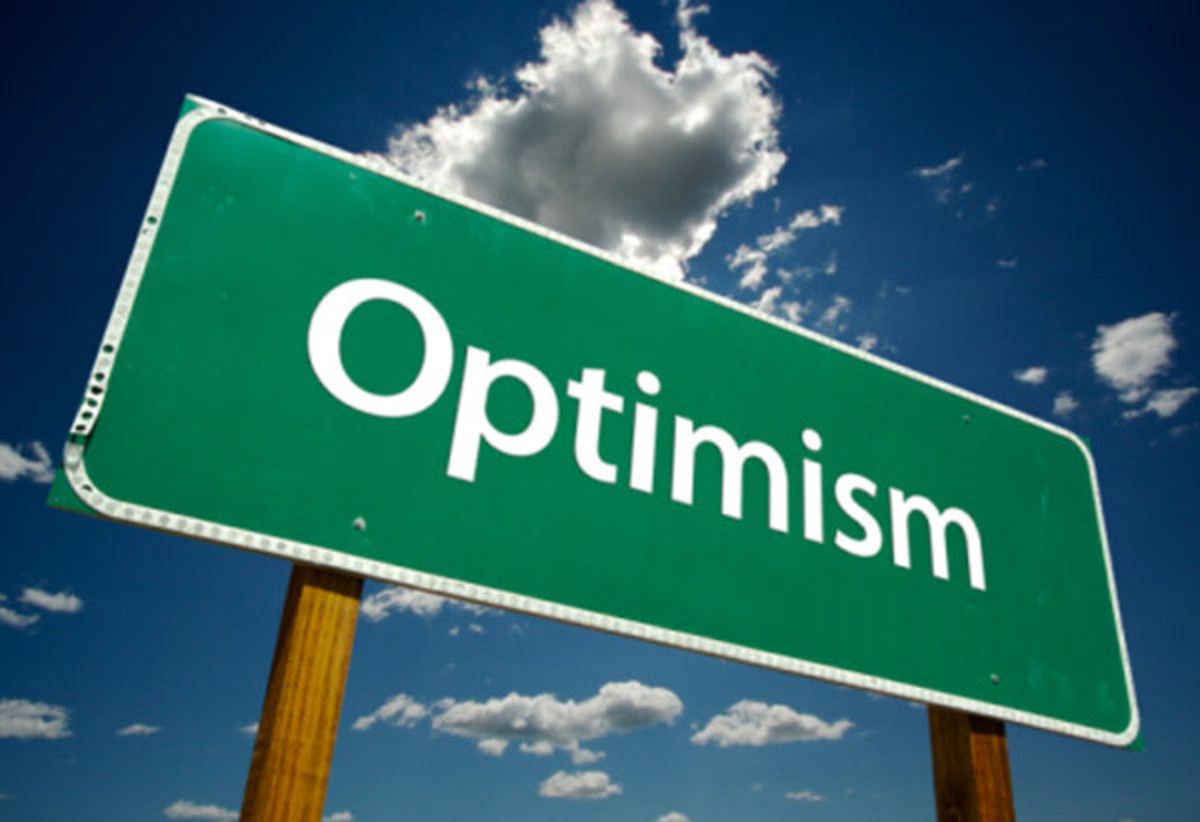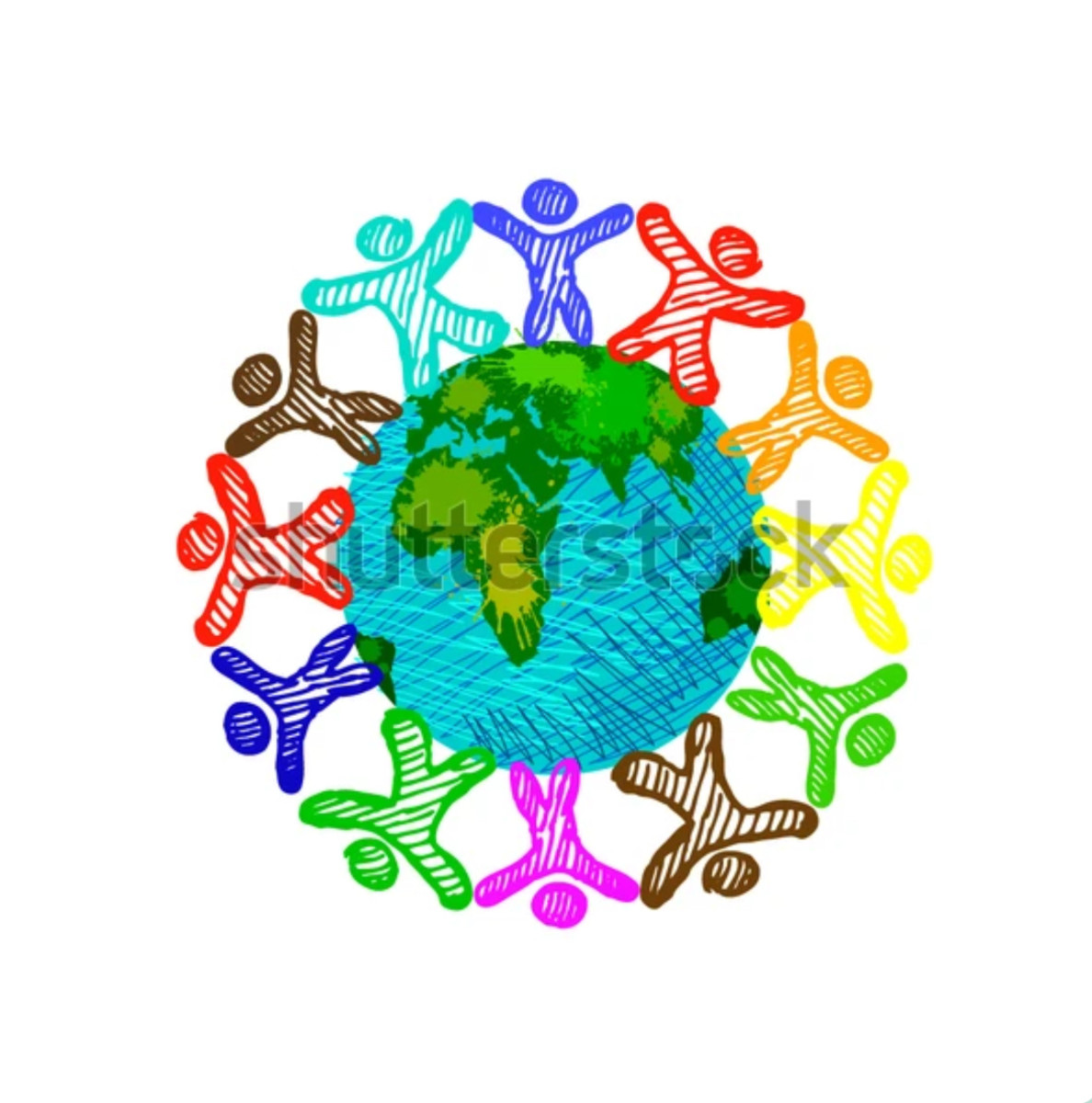Decentralization: The Solution For Our Institutions
The Many Woes of Modernity
Our modern world is plagued by a mass suffocation of the human spirit orchestrated by a myriad of failed institutions. We have, as a species, progressed immeasurably far from our humble beginnings. We have, however, also kept many tendencies that served us well in the past but serve only to hinder us in the present. Our primal urges to establish unalterable belief systems have cast much suffering on the globe. We must recognize that there is not just one way to live correctly. There are infinite ways, and we must forge a world that shall allow them all to flourish.

The Natural State of Man
To understand what sort of world we must make for our descendants, we must first understand what sort of world our ancestors made for us. The mankind of millennia past was terrorized by many threats; predators, starvation, disease and natural disasters decimated us for generations on end. After switching to agricultural and urban lifestyles, these threats dissipated, but they were replaced by a set of new threats that have continually grown. Inner unfulfillment, civil strife and tribalism all now ravage our world. The solution lies in banishing problematic attitudes and institutions, but the difficulty lies in achieving this feat.

Solutions of the Past
Great ideas wielded by powerful people tend to end up becoming new institutions. Every nation, religion and ideology in the whole world came into existence through this principle. When an inspired individual or a commanding collective introduced a new institution and the common populace embraced it, this new institution became ingrained into the society. A paradox plagued every single sort of system across the globe, though. Those systems that failed to catch on with more than a few isolated groups were powerless to make meaningful and moral change to the world at large. Meanwhile, those systems that did become widespread and wildly influential were soon so powerful that their former moral foundations were corrupted into becoming immoral monsters.
Throughout our history, it was clear that all large institutions eventually became so drunk on power that they lost the ability to govern effectively and morally. This realization led to the development of a wave of religious systems that preached the need for individual enlightenment to create incorruptible collectives. However, this fulfillment always came from following specific and inflexible religious practices. Hinduism, Buddhism and Christianity all developed around this principle, but they failed in their noble efforts for one simple reason.
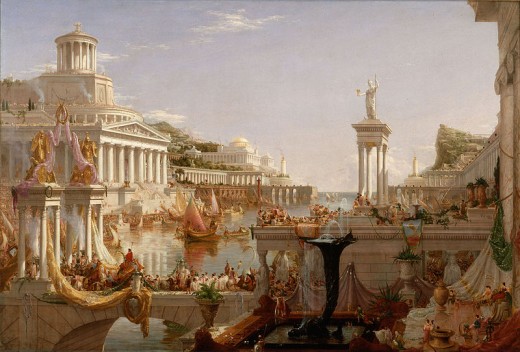
Solutions of the Present
We in the modern era are just starting to see this reason. No single religion, philosophy or ideology, even one that attempts to steer people towards individual enlightenment, can work for all of its adherents. However, these institutions of ours do give us invaluable feelings of community and belonging we all desire. The rise of the nation-state has made these two assertions abundantly clear. Modern countries have largely replaced local cultures with national monocultures, giving the populace a sense of belonging but not often helping them to become fully self-actualized.
Recently, another development has come to the forefront of our collective attention. In many countries across the globe, national identities have faded away in favor of smaller tribal identities. People in the U.S., for example, typically treat national American culture with disdain. They prefer to identify themselves with different identities, usually ethnically, religiously or politically based. This is a positive change in some regards, as diversity is always more stable than monoculture. However, we are increasingly fighting along these tribal lines to help our own tribe gain power over others.
The original problem of the inherent corruptibility of huge institutions has been ignored. We are constantly striving to replace the old order with new ones. This continues the cycle of empire by establishing new orders, which then grow, mature, stagnate, fragment and collapse. True salvation does not stem from continuing this destructive cycle, nor does it arise from following inflexible dogmas that cannot hope to fulfill us all. This has been seen in our era largely within religions, as many people individually interpret previously inflexible religious ideas however they please. As is overwhelmingly obvious, though, we need much more than sporadic freedom in religious ideas to achieve true greatness. We need radical change, and we need it now.
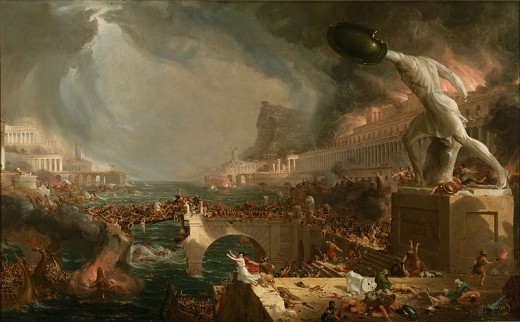
Solutions of the Future
True salvation stems from the recognition that local culture and individual expression are embedded within our genes. They are our natural inclinations, and they must be encouraged. However, our own cultural customs and individual ideas do not necessarily mean anything to anyone else. We cannot allow ourselves to fall into the trap of believing we are superior to others. We must forge a world where we can live well and actualize ourselves, while at the same time allowing everyone else to do the same. And, while this may seem like a utopian goal at first glance, it is only really so to those of us too afraid to try.
Institutions, mainly political and religious ones, have made countless efforts to snuff out free expression in favor of monoculture and indoctrination. And, as it seems, their efforts have been successful. The huddled masses of the Earth rarely raise a finger against those who have made their lives miserable messes. They are stuck in the mud of their enslavement. The institutions that man himself built are now his biggest adversaries. It is imperative that the break-up of these institutions becomes the first and most pressing goal of those with an interest in self-salvation.
The questions then arise of how we rid ourselves of institutional slavery and what our many modern systems are to be replaced with. As to the first part of this dilemma, it is imperative that every individual seeks their own self-actualization and fulfillment outside the systems that force their rule upon them. This is what the religions mentioned above got right. Every individual is most certainly capable of living satisfied and important lives simply by looking within themselves and following truths they think to be self-evident. However, this satisfaction cannot come to everyone from a single system. It is important that we foster a culture that promotes the individual discovery of the ultimate meaning.
In the realm of practical action, we must stop associating ourselves with massive parties that care not about our interests. We must stop our incessant demonizing of those we disagree with. We must stop allowing the injustices committed by our rulers to go unnoticed. We must tear apart the veil of ignorance laid over us and trust our own experience over what others tell us. We must recognize that our immense institutions do not care for our well-being. We must aid the process of decentralization by focusing on harnessing the positive powers of local culture governance, and we must resist tribalistic urges to conquer and rule over others.
Every person on Earth is a subject of powerful institutions. Without the breakdown of these institutions into more localized and less corruptible pieces, we as a species will continually live under tyranny. However, a radically decentralized world brings with it the possibility of slowly growing just as centralized as the world it emerged from. The solution to this problem lies in humanity universally recognizing a series of self-evident principles that are undeniable and prevent the acquisition of unjust power. There is much work to be done today, however, and the discovery of such lofty principles is the job of tomorrow.
